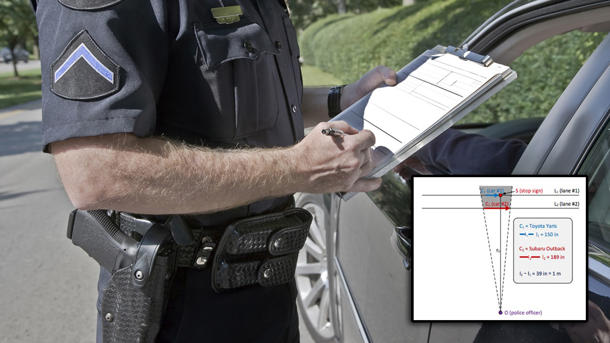L.A. NOW
Southern California
O.C. cops guilty of conspiring to dismiss woman's traffic ticket
Jurors on Thursday convicted two Orange County police officers of
conspiring to dismiss a traffic ticket given to a woman driver who
promised one of them “a bunch of alcohol” in exchange for his help.
Erik Michael Krause, 44, a 22-year veteran of the Huntington Beach police, and Garden Grove Officer Michael John Zannitto, 47, were found guilty of misdemeanor conspiracy to obstruct justice. They could face up to a year in jail when they are sentenced next month.
Prosecutors say Krause ticketed a woman for speeding near a school bus Nov. 9, 2011. Later that month, Zannitto met the woman at Knott’s Berry Farm while off duty after learning she worked in the alcohol industry. The officer told the woman he could have her citation dismissed, prosecutors said. Officials say Zannitto instructed the woman to send him a picture of the citation and told her how to contest the ticket. She sent him the ticket and promised free alcohol in exchange for a dismissal, prosecutors said.
In January, prosecutors said, Zannitto called the Huntington Beach police and said the woman was his sister and asked to speak with the officer who issued the ticket.
 Zannitto
talked with Krause, who promised to “take care of” the ticket,
according to prosecutors. Zannitto then texted the woman that the
ticket would be taken care of, prosecutors said.
Zannitto
talked with Krause, who promised to “take care of” the ticket,
according to prosecutors. Zannitto then texted the woman that the
ticket would be taken care of, prosecutors said.
“Please dismiss in the interest of justice. No notes,” Krause wrote on
his declaration, according to the district attorney's office.
A Huntington Beach police lieutenant initiated the investigation, but
the district attorney’s office said that because Krause’s declaration
was never filed with the court, the woman’s $234 ticket was dismissed.
Erik Michael Krause, 44, a 22-year veteran of the Huntington Beach police, and Garden Grove Officer Michael John Zannitto, 47, were found guilty of misdemeanor conspiracy to obstruct justice. They could face up to a year in jail when they are sentenced next month.
Prosecutors say Krause ticketed a woman for speeding near a school bus Nov. 9, 2011. Later that month, Zannitto met the woman at Knott’s Berry Farm while off duty after learning she worked in the alcohol industry. The officer told the woman he could have her citation dismissed, prosecutors said. Officials say Zannitto instructed the woman to send him a picture of the citation and told her how to contest the ticket. She sent him the ticket and promised free alcohol in exchange for a dismissal, prosecutors said.
In January, prosecutors said, Zannitto called the Huntington Beach police and said the woman was his sister and asked to speak with the officer who issued the ticket.
 Zannitto
talked with Krause, who promised to “take care of” the ticket,
according to prosecutors. Zannitto then texted the woman that the
ticket would be taken care of, prosecutors said.
Zannitto
talked with Krause, who promised to “take care of” the ticket,
according to prosecutors. Zannitto then texted the woman that the
ticket would be taken care of, prosecutors said.

